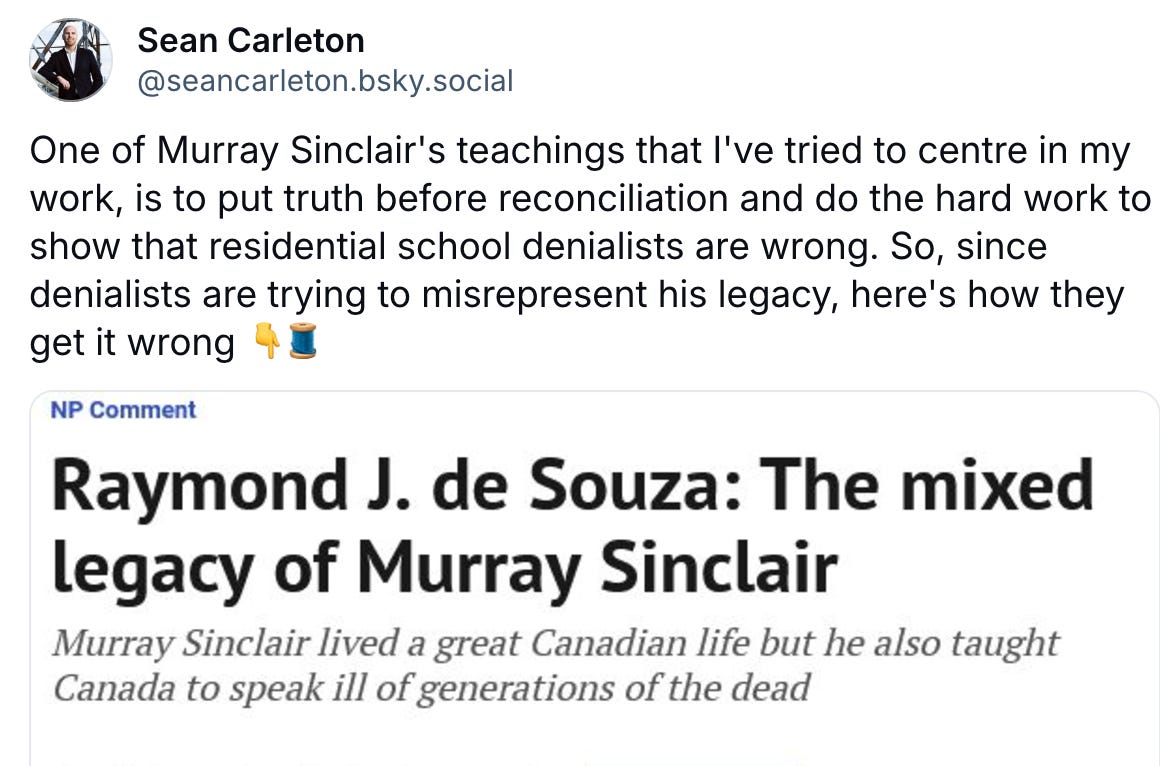
Discover more from A Campus Resident
An attentive audience gathered over the dinner hour in Sty-Wet-Tan, the grand hall of UBC’s First Nations House of Learning, Nov. 14, 2024. The event was a panel featuring noted lawyer and author Michelle Good and historian Sean Carleton. They were joined post-break by UBC’s own Andrew Martindale who spoke about the technical archaeology supporting the telling of truth.
Victor Guerin, linguist and Musqueam First Nation member, opened the event with a welcome and a song.
Sean Carleton spoke first. His presentation highlighted current examples of public figures denying the systemic racism of Canadian policies that resulted in Aboriginal cultural genocide. He noted, “denialism is not new, it is as old as the Indian residential school system.”
Carleton told us how in 1907 Peter Bryce, MD, wrote a devastating report on the poor conditions in Indian residential schools. Bryce’s careful reporting made clear, over 100 years ago, the way the schools were being run was causing illness and death at rates far above what should be the case. His report was ignored. Many of the same denials used today were used to deflect Bryce’s report and his attempts to improve conditions in the schools.
All intentions aside, Carleton told us, the schools caused death and disruption leading to the undermining of First Nations’ sense of self and wellbeing. Non-Indigenous Canadians need to acknowledge this truth, said Carlton, for genuine reconciliation.
Carleton explained part of what holds some non-Indigenous Canadians in thrall with denialism is their own cognitive dissonance. Most Canadians have gown up with the idea of a ‘nice’ Canada the good, or at least not as bad as the Americans. My own childhood school lessons taught, for example, that the NW Mounted Police (precursor to the RCMP) were sent to the prairies to prevent rapacious American whiskey traders from corrupting prairie First Nations. When in fact the NWMP’s explicit role was to facilitate the expropriation of First Nations land, police Metis insurrection, and yes keep the Americans out. While not as bloody as the American calvary’s war on First Nations, Canada’s own paramilitary was given the same objectives as their American cousins -to take the land for settlement.
The residential schools were instruments of the larger colonial theft and attack against First Nations. Non-Indigenous Canadians schooled in the ‘nice’ Canada tradition often find it hard to believe that cultural genocide is part of Canada’s historical legacy. Accepting this truth is critical, Carleton told us, for Canada have an authentic reconciliation.

Michelle Good picked up the theme of cognitive dissonance in her comments. Like Carleton, she highlighted the importance of hope and the value of knowing the truth. Having worked a quarter century with First Nations organization and then another decade and a half as a lawyer for residential school survivors she explained the writing of her first book as a necessity to bring the truth to a wider community.
Five Little Indians is a novel, but the stories are true. Good explained that she chose to write a novel as it allowed her to tell the truth without being limited by the facts in the way non-fiction is. She also explained that it took her a long time to write Five Little Indians as she wanted to ensure her storytelling wouldn’t further traumatize residential school survivors.
The panel ended with a conversation initiated by Carleton reading from Good’s recent book, Truth Telling. Here they focused on the hope they held in all Canadians being able to work together rooted in the truth of Canada’s colonial practices.
Throughout the evening the speakers highlighted the importance of historical truth -not to shame, but rather to liberate and allow people to be able to live and work together.












I'm glad there are people working within the system that see this. I hope they see the ways that the domination of white supremacy extends beyond this too. As a white person I see a major cultural block at moving forward because of our relationship with shame. Along with violence, it's one of the go-to tools used to submit others to domination, and the other side of the coin is that it fuels denial. To own the truth is to be outcast, for so many white people.